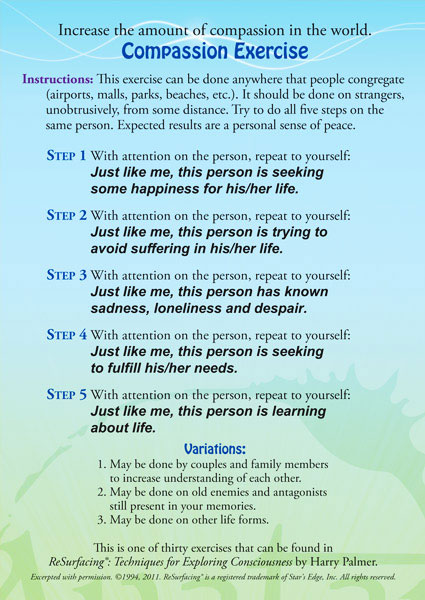How to Honor Your Family While Starting Your Own

One of the hardest transitions in life happens after you become an adult. It isn’t a new job or new apartment of your own. It’s bigger than that. It’s moving from being someone’s son to someone’s husband, and for many men, becoming a father. You suddenly take on a new role and leave the old, kid-version of you behind.
When you grow up and venture off to carve your own path, you leave behind those that spent your entire life to that point, carving a path for you, giving you traditions to follow and call your own, teaching you about life, love, the birds and the bees, and protecting you and your drive to become something in the world above all else.
Then you find yourself a mate, decide to get married, and inherit in-laws. What traditions do you keep from your family? What do you keep from hers? What do you create as your own? How do you balance the cultures of three families at once?
I recently received an email from a listener who wanted to talk about how this transition is difficult for parents. As a mom, she wants to always be supportive of her adult sons, but also wants to feel valued and get a little reciprocity for the sacrifices she and dad made to raise them.
Gentlemen, this is a big deal. This is about honoring those that carved your path, before you could take on the responsibility.
In this episode, we’re exploring the relationships that are affected when you become a man of your own. It is an episode for sons, and daughter-in-laws, and even my own parents and in-laws.
There’s a space for guys to recognize the auxiliary players in their transition from boys to men. We forget that the world doesn’t revolve around us. We forget there are those that came before us, and we forgo wisdom for independence all too often.
So let’s explore how to honor your family while starting your own. Take a listen and let me know what you think in the comments below. [Subscribe Here]
SHOW NOTES:
I need to preface this with a disclaimer. This is not an episode skewed toward respecting your parents and elders by giving into their requests, traditions, and emotions. This is, rather, an episode about awareness. I am doing this for both the gentleman struggling to balance the demands of both sides of his family, and also for parents to understand what’s happening and what many young men consider unacceptable behavior.
This is my take and professional opinion after interviewing several parents of adult children (including my own mom). I don’t speak for everyone, but I hope to speak to enough of you out there to maybe help you expand your awareness. Please leave a comment if something resonates with you, or if you feel something is way off base and I need to know.
Let’s throw caution to the wind and chew on a hard truth right from the beginning…
Gentlemen, your mothers feel undervalued when you exclude them.
This can also occur with fathers, but men a little more “pause-play” when it comes to relationships. Men can move away and talk to their fathers only once a year, and neither one seems to have an issue with it. Business as usual. Mothers, however, aren’t wired quite the same.
When you were little, they took care of you. You came to them for answers, guidance, protection, instruction, and warmth. When you grow up, they begin to feel like their value is dwindling. You’ve seen this scene played out in movies all the time. Suddenly little Timmy isn’t so little and he doesn’t need mom’s help with school work or asking Jessica to Homecoming.
On a grader scale, when you find “the one” and want to start a life with her, your mom knows she is being replaced by this new love. It’s a joyous moment, but it’s also the true beginning of the end. The most she’ll ever be is mom, and she hopes you’ll still make an effort to reach out when you need to talk. She wants to know she’s still valued. We’ll address the “in-law” paradigm in a minute, but for now, just remember that moms of adult sons want to be included in more activities and decisions so they can retain their perceived value.
Parents, your kids are flourishing because of you – celebrate that!
After speaking with a group of moms with adult sons, they all seemed to come to the same eventual conclusion: “my kids are alive and happy, and relatively good at adulting, so it’s time for me to do what I want to do…finally.”
Many parents try to stay tightly involved with their adult children because those humans are all they’ve really invested in for the last 2 decades or more. One of the greatest things parents in this weird transition stage can do is celebrate the independence of their offspring!
You are now given the opportunity to pursue things you may have always loved, but didn’t really have time for. Think of all the money you’re saving with the kids out of the house! Use that money on yourself! You more than deserve it.
The idea that you need to be available to fix, correct, help, support, or heal a wound just in case is silly. You raised adults and they’re capable of so much because of you. Take some deep breaths and reflect on your success with gratitude.
Parents, you cannot meddle “for their own good” because you will be martyred.
I cannot stress this enough. In a previous episode, I introduced the concept that being a hero makes you an idiot. That’s because doing things to save others, based on your own perception and without invitation will only get you crucified.
You do have valuable insight into what your adult kids are going through (or potentially about to go through), but you can only share your insight and story as an invitation or offer. One of the biggest conflicts I kept hearing was “we were just trying to help” and the help was not well received.
The same way you wanted your parents to step back and let you become your own person, you must now also let your adult kids do the same. By continuing to “help” without being asked, you risk becoming a nuisance, and eventually, someone with whom they avoid sharing time, experiences, and adventures.
This is one of the reasons there are so many “in-law” jokes and idioms. We don’t know you, and you (in-laws) want to be involved in everything we’re doing? That’s annoying as hell. More on that in a minute.
Gentlemen, you cannot allow insecurities to rule your home.
This is a quote I read in an advice column. And I’ve heard variations of this situation in real life, so it’s important to share.
“He grew up, joined the military, met (and married) a girl in a different part of the country, and she’s insecure so he has to include her on everything and has pretty much excluded his family from everything in his life. We haven’t seen him in years.”
No. This is a big NO. You’ve seen your friends (or maybe it was you) date someone that didn’t let him hang out without her. Or maybe he was forbidden to hang out with his friends because she didn’t trust him/you all/whatever other excuse. You hated that, didn’t you?
Of course you did. So let’s have a moment of honesty here…
If you find yourself in a situation in which your spouse or family members are so insecure they are preventing you from seeing and sharing your life with the people you love, you are in a serious pickle. Take your balls out of the jar above the fridge and put an end to the madness.
Another person’s insecurities cannot be made the rule of law in your house. Whether it’s your own insecurities, your significant other’s, your family’s, or some other influential person’s, this is unacceptable behavior. If you have kids, you are teaching them that caving to another’s insecurities is how life is. Now, is that a value you want to instill in your sons and daughters?
Parents, your insecurities are not your children’s problem
My sister’s ex-husband is a man I’m proud of today. He’s come such a long way in discovering the control he’s been fighting against in his family system for three decades. When he and my sister were married, his mother played the victim in every way, on every occasion, and with very little warning.
If she wanted to see them for the entire day on Christmas (10am-10pm), but they had to be at our house at 5pm, she would throw a fit and cry and complain that she wasn’t given fair treatment. They would constantly have to walk on eggshells around her so they didn’t rock the boat and upset her. She was (and still is) exhausting, and now that he’s woken up to a lifetime of this behavior, he has stepped up and created new rules. Even though he and my sister are divorced and have my nephew, they get along well, both have new loves, and are on the same team.
So parents, your feelings of insecurity and lack of validation from your adult children is hurting everyone. Your kids aren’t here to rig the game so you win and feel better. They do want your input, but also your support to make their own decisions. The two cannot be mutually exclusive.
Gentlemen, you need to make a plan with your family and your spouse.
Because when you start a family of your own you’re actually combining three cultures (family systems), and you need a plan. You need ground rules, conversations, collaboration, and an open mind. Sit down with your own parents and ask them questions like these:
- What is most important to you in our relationship as adults? (how often I visit, call, that I agree with you most often, etc.)
- What can I do to make you happy even if I can’t do exactly what you want / what’s an easy-win compromise?
- What do you want me to do/say when we are not seeing eye-to-eye and might get heated (aka: you’re getting annoying, mom)?
- What family traditions are most important that I hold onto in my relationship (marriage, etc.)?
Next, sit down with your spouse / significant other and go over similar questions:
- What is most important to you in our relationship?
- In what situations should I always agree with you, above all else? (this is good because there should always be room for negotiation and compromise)
- What traditions are we making ours? Share each other’s family traditions and decide which fit your relationship best.
- What is most important in our relationship with your parents / my parents?
- What is an easy-win compromise when I can’t do exactly what you want?
- What is non-negotiable for us as a couple, in respect to challenges from our families?
Have her ask the same parent-based questions to her family and see what kind of answers come back. It’s important for you to have open communication about the expectations of the family. When it comes to different family systems, the little difference may not seem significant to you, but they may be of paramount importance to other members of the family.
When you have a plan and you get all the questions and ideas out in the open, you get the chance to brainstorm and compromise together. When your parents, her parents, and the two of you can all walk away satisfied, you strengthen your relationship with everyone.
Now let’s move onto two key issues that impact both sides of the family…
The Mother-in-Law Dilemma
If I had a dime for every time I heard a mother-in-law joke, I would be a far richer man. The hardest part of these comments and jokes is there’s a layer of truth in them. Mothers-in-law can be crazy, exhausting, unreasonable, and a pain in the ass. Then again, they’re up against a lot. You have come into their perfectly predictable little family structure and thrown everything off.
She has raised a family and knows her children. She knows what they desire, what they fear, where they excel, where they second-guess themselves, and what kind of love they need and deserve. You enter the family and have a different perspective on things. Your desires are different. Your needs are different. Your demands of her daughter’s attention is always more than she’s prepared for.
If you have children and she’s now a grandmother, she has to try and find the balance between being the best grandmother from her family culture, and being an accepted grandmother in your family culture. Sometimes she has to bite her tongue and second guess herself because it’s your marriage and family now. That kind of sucks, right?
At the same time, mothers-in-law can place unacceptable demands on their married adult children because they are unwilling to compromise. When we grow up and marry your daughters, we are not (for the most part) looking to eliminate you from the picture. We are, however, looking to build a life and family with your daughter, making you an auxiliary player. You become an extended member of our little family, and unfortunately, you have to accept that we (your daughter and I) know what we’re doing and want you involved, but not as a meddler.
 One quick exercise I invite you all to do the next time you have the chance (especially if you’re dealing with an in-law), is the Compassion Exercise. It’s very simple, and all you have to do is think about them and repeat a few phrases in your head. It is designed to help you discover a bit of empathy and perspective.
One quick exercise I invite you all to do the next time you have the chance (especially if you’re dealing with an in-law), is the Compassion Exercise. It’s very simple, and all you have to do is think about them and repeat a few phrases in your head. It is designed to help you discover a bit of empathy and perspective.
This is an exercise I like to practice while on the train. I will look around and observe other passengers. I will judge them, like we all do in our heads, based on their fashion, their organization, size, demeanor, etc. I will then go through these phrases in my head.
I find when I see others are seeking fulfillment, avoiding pain or suffering, and that they’re simply learning about life, I can empathize with their journey.
I’ll never be a mother-in-law, but I can understand that she’s experienced suffering and sadness, and is seeking happiness and fulfillment. I can understand that some situations may be foreign to her, and just like me, she’s learning about life.
Try it. And stop making mother-in-law jokes. If you break the pattern, you might just be the catalyst that stops bad mother-in-law jokes forever. You could be that guy.
The Honor Equation
When push comes to shove, much of the disconnect in family systems is a selective lack of honor. When the entire family honors traditions, everything is good and balanced. Should someone decide they’re not going to honor an old tradition, the family system gets thrown into the spin cycle.
“How dare you do this! You have to honor your father’s wishes!”
Yikes. This phrase is often a match light of destruction.
When you want to build a family of your own, recognize your lineage. Understand the sacrifice and compromises your families made to create a life for the two of you. Honor the efforts, traditions, stories, and input they want to pass along to you. Does this mean you have to agree with them? No, of course not.
It does mean, however, that you honor them by being honest and grateful. If your parents want you to get married in the church they got married in, but you and your fiancée want to get married on the beach, be honest. Let them know you value their input and love their story, and remind them that this is your love story, and it includes a lot of differences.
Honoring doesn’t mean agreeing. It means recognizing and with empathy. If you are annoyed by your mother (or mother-in-law) nagging you about everything, it’s more often than not, a lack of you honoring her. Everyone just wants to be heard in the world. If you ignore and dishonor those ideas and voices in your family system, they will only get louder, more frequent, and more ‘irrational’ to you.
How do you balance it all?
Honestly, you don’t. You can’t.
Because it’s not a finite system of variables, you’ll never to predictably balance any of it. People are dynamic! We change attitudes, perspectives, and directions a hundred times an hour. How on Earth do you balance that many variables all the time?
You have to practice a little more stoicism, and take things one-day-at-a-time. Practice honoring those that carved your path before you could do it yourself, and let their voices be heard a little more often. Sometimes all it takes is a call to your mom to trade stories and listen to honor your family and completely change the pressure of your relationship.
Practice honesty, empathy, and honor, and I can promise you, that effort will pay dividends beyond your wildest imagination.
What do YOU think about your in-laws and your relationship with them?
Was I way off base on anything? What’s your experience in strengthening the family?
Leave a comment below so we can connect!




